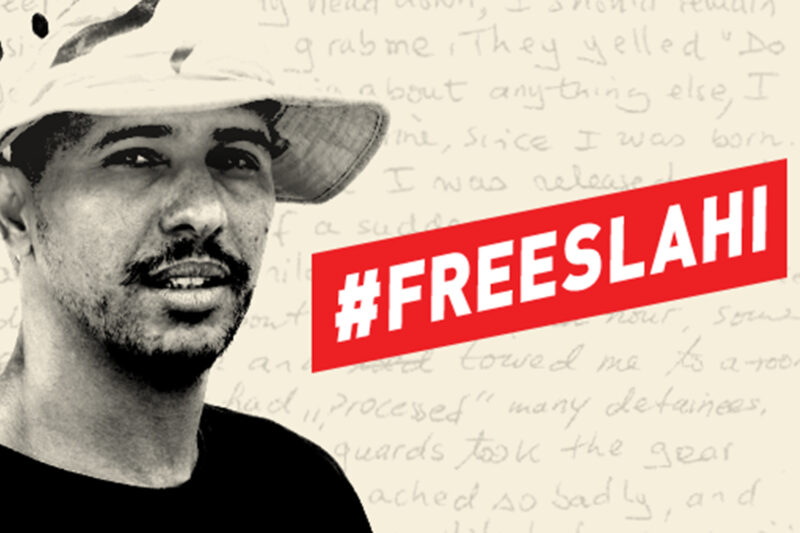Hearing Thursday Could Clear Path to Freedom for ‘Guantánamo Diary’ Author


Mohamedou Slahi has been unlawfully detained for 14 years at Guantánamo Bay and is the author of a best-selling book about the ordeal he suffered there. A hearing Thursday could result in his freedom.
After years of waiting and litigation, Slahi will finally receive a Periodic Review Board hearing. President Obama ordered PRB hearings for the men at Guantánamo five years ago. The board is made up of senior officials from military and intelligence agencies who are tasked with determining whether a detainee poses a “significant threat” to the United States or can be cleared for release. A PRB does not determine whether the initial detention was justified — that is a task for the federal courts deciding challenges. In Slahi’s habeas case, a federal court judge — still the only neutral person to have reviewed all the evidence — found in 2010 that Slahi’s detention was unlawful and ordered him released. But the Obama administration appealed, and the federal habeas case languishes still.
Slahi remains at Guantanamo despite the fact there he has done no wrong, and there is no evidence with which to charge him.
But if all goes well in the PRB process, a man who has never posed a threat to the United States could reunite with his family after the purgatory of detention without charge or trial.
Slahi was detained in 2001 in Mauritania at the behest of the United States, on suspicions of involvement in the so-called Millennium Plot to attack the Los Angeles airport. Those suspicions turned out not to be true. From Mauritania, Slahi was rendered to Jordan and to Afghanistan, before arriving at Guantanamo in August 2002. There, he endured a brutal torture regime — including beatings, sexual assaults, a mock execution, and more — authorized by former Secretary of Defense Donald Rumsfeld.
And yet he retained an incredible sense of humanity and compassion, on display in his memoir, “Guantanamo Diary,” which was published last year to after a years-long declassification struggle. The memoir tells the story of his terrible odyssey and also reveals a thoughtful and funny man who never loses hope, even in his captors:
“Your family comprises the guards and your interrogators. True, you didn't choose this family, nor did you grow up with it, but it's a family all the same, whether you like it or not, with all the advantages and disadvantages. I personally love my family and wouldn't trade it for the world, but I have developed a family in jail that I also care about. Every time a good member of my present family leaves it feels as if a piece of my heart is being chopped off.”
Slahi remains at Guantanamo despite the fact there he has done no wrong, and there is no evidence with which to charge him, as by Col. Morris Davis, the former chief prosecutor at Guantánamo.
Thanks no doubt to the critical success of “Guantánamo Diary,” which climbed to The New York Times bestseller list soon after its release, Slahi’s case has earned wonderful support from around the world. His struggle has earned the attention of the likes of ACLU ambassador Maggie Gyllenhaal, who sent an email on Slahi’s behalf to ACLU supporters; , who will be producing the film adaptation of “Guantanamo Diary”; and . Colin Firth, Jude Law, Stephen Fry, Alan Cumming, Dominic West, and many more notables who excerpts from the book.
Over 80,000 people have joined our campaign to #FreeSlahi, along with our many partners, including . We hope more people will add their names, and we will deliver all the signatures to Secretary of Defense Ashton Carter, asking him to act quickly to ensure Slahi is freed, once, as we hope, the PRB clears him for transfer. Slahi’s native Mauritania has already made clear it would welcome him home. He and his family have waited long enough.
And so we hope. The PRBs 22 out of 29 detainees whose cases have been decided. If President Obama is serious about closing Guantánamo before he leaves office, this pace needs to quicken, and Mohamedou’s case is a crucial opportunity.
Tomorrow’s hearing could herald an end to the injustice Mohamedou has suffered, and a new hopeful chapter for him going forward.

